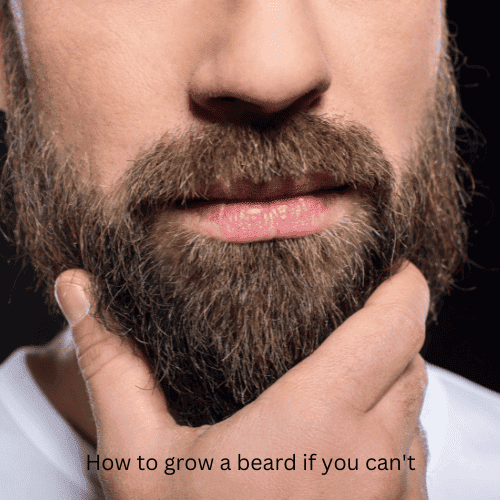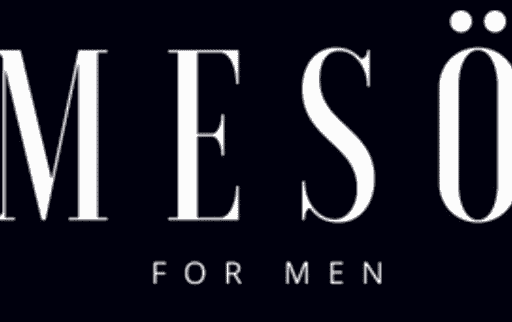how to grow a beard if you can’t
How To Grow A Beard If You Can’t
If you want to learn how to grow a beard if you can’t, there are a lot of myths and misconceptions as to what will work and what won’t.
The truth is, growing a beard if you can’t isn’t impossible. There are a number of different ways to go about things, and there are even some products out there that can help you.
One of the more commonly known products is beard oil. It’s a moisturizing oil that will help your beard grow, as well as make it feel softer.
So, keep reading if you want to know how to grow a thicker beard if you can’t with just a few drops of beard oil.
Using a beard brush on longer beards can also help to improve beard growth at different rates and to help your thin beard to be beard envy.
Why can’t I grow a beard?
If you’ve been unable to grow a beard for the first time or keep it robust and impressive, you may want to check out a few things you can do on your own to aid your quest.
If you are lacking facial hair growth, you may want to consider a beard transplant. If you are lacking in motivation, you may want to consider starting a beard club.
If you are lacking in confidence, you may want to consider beard oils or a beard balm.
The beard is the manliest facial hair, and we all have at least one if not several.
The problem, though, is that many men struggle to grow them, and often they are patchy and sparse, or rather, present only when they want to be.
Growing a beard has been a topic of much debate lately.
Some people are so afraid of it that they would rather shave it off, while others want to maintain the facial hair but don’t want to grow their full beard for whatever reason.
But some can do it because of beard genetics. To know more, here is the list below:
1. Age.
As you age, you start to notice some areas of your body that improve while other areas begin to fall behind.
Your beard hair and face shape are two of the most noticeable of these changes: the hair on your head becomes thinner and weaker, and the hair on your face and body progressively loses its strength, volume, and its ability to resist frizz.
As you age, you may notice that your beard is not as thick and as fuller beard as it used to be.
Blood circulation can also be a factor stopping the growth of your facial hair, and preventing you from growing a glorious beard.
2. Genetics.
Genetics is the reason most of us can’t grow a beard.
While the number of hair follicles on your face is affected by age, genetics is the ultimate determining factor on whether or not you will grow a full beard.
If your father or brother have grown beards, they probably can; while if they have not, you probably can’t. That’s because genetics have a lot to do with hair growth.
3. Ethnicity.
Ethnicity has a number of effects on the way we look, some of which may not be so obvious.
For instance, your ethnicity can influence how tolerant or intolerant of others you are. It can also affect how quickly you lose or regain weight and the color and style of your facial hair.
Being ethnically different can have an impact on your beard-growing abilities.
For example, if you are a black man and you have curly hair, you will probably try to grow a beard, and it will probably grow pretty well, but if you are white or Hispanic, you have a good chance of growing a decent beard.
4. Alopecia Areata.
Alopecia Areata is a rare, autoimmune condition that causes hair to fall out without any apparent reason, usually in patches.
While the exact cause is not fully understood, the disease is thought to be triggered by an overactive immune system, which mistook hair follicles for the hair’s body.
There are many reasons why alopecia areata (AA) and other forms of hair loss can affect beard growth and thicker hair. Here are a few of the most common causes:

5. Poor Nutrition.
If a person does not eat a balanced diet and is not consuming enough protein, they may start losing their hair.
This can be an important factor and eating healthy fats as a diet from Mediterranean countries can help give you the best chance of getting the beard of your dreams.
The good news is that for the best results, a big part will be the simple steps such as your diet, so it’s a good way to start.
6 Inflammatory and autoimmune diseases:
Multiple factors, such as hormone imbalances and genetics, play a role in autoimmune diseases such as alopecia areata and alopecia totalis.
These diseases, in turn, can affect hair growth.
7. Stress:
Chronic stress can cause an unhealthy immune system, and as a result, hair loss, as well as other problems.
In most jobs, people have stress, but too much is not good for your beard growth.

8. Low Testosterone Levels.
Low testosterone levels can affect beard growth. It’s a fact that a couple of men who have low testosterone levels have a hard time growing beards, especially if their body is not used to them.
While there are some medicines that can help, such as HCG and testosterone boosters, maintaining healthy testosterone levels throughout a man’s life is key to healthy beard growth.
Low testosterone levels affect beard growth because testosterone is absolutely essential for your body to grow facial hair.
When you are old enough to get a beard, your testosterone levels are at their highest, and it’s not unusual for it to fluctuate.
When you are young, testosterone levels may fluctuate due to diet and lifestyle habits, but you’ll go through a gradual decline as you age.
The problem is that the declines are gradual, and while a mid-twenties guy might have a rate of decline of only an inch a year, a fifty-year-old man may have a decline of up to 4 inches (10 cm) a year.
This is because testosterone is responsible for hair follicles and skin thickness.
Frequently Asked Questions
Q For a while, I’ve been trying to grow a beard, but it’s not developing evenly. What should I do?
A: Uneven beard growth is typical, particularly in the beginning. Let it grow and repress the impulse to shape or cut it too soon. To soften and condition the hair, you can also try using beard oil or balm.
Q My beard itch and makes me uncomfortable. What can I do?
A: A new beard will likely itch at the start, but there are things you can do to reduce the irritation. Make sure to keep your beard clean by routinely washing and conditioning it, and try using a beard oil or balm to hydrate the skin and hair.
Q: My beard has blotchy areas. Am I still able to grow a full beard?
A patchy beard can still develop into a complete beard, but it might take longer for those places to fill in. While you wait, you can experiment with shaping your beard to lessen the visibility of the patchy regions, or you could think about using a beard filler or growth serum.
Q How long does a full beard take to grow?
A full beard takes different people a different amount of time to develop. Most guys can develop a full beard in 2 to 6 months on average, while some men may need a year or longer.
Q What can I do to encourage the growth of my beard?
A balanced diet, regular exercise, and adequate sleep are all factors that can encourage the growth of beards. Using beard oils, balms, and other grooming supplies made to nurture and promote hair growth is another option.
Q: Even if I have thin or fine hair, can I still grow a beard?
A: If you have thin or fine hair, you can still grow a beard. To increase growth and thickness, you may need to be more meticulous about grooming and applying treatments as the hair may take longer to fill in.

